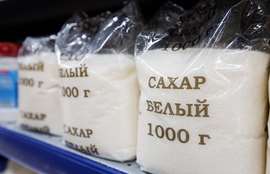
A number of benefits and temporary rules introduced during the coronavirus epidemic last year will expire in April, Parlamentskaya Gazeta writes in its review of the upcoming changes.
Child payments
In particular, it is reported that the Russians have a week and a half left to arrange New Year's payments for children . As the newspaper reminds, in December last year, President Vladimir Putin ordered to pay all families five thousand rubles for each child under eight years old.
The majority of Russians received these payments without a declaration in the first week after the signing of the decree. The Pension Fund reported that by December 25, 13.5 million children had been transferred to their parents. The money was automatically credited to those who previously received payments appointed by the president in connection with the pandemic. The rest had to apply for payments accordingly. This can still be done – until April 1, 2021.
Sick leave for elderly workers
It is also reported that from April 1, Russians over 65 will no longer be able to apply for sick leave to comply with the self-isolation regime and receive payments for temporary disability.
The newspaper reminds that a year ago the Cabinet allowed this category of citizens to issue sick leave and receive payments for temporary disability. All documents were processed electronically.
It is noted that the government decree, which abolishes “quarantine sick leave”, recommends that employers transfer elderly employees to remote work as a priority.
Borrower immunity
From March 31, the recommendations of the Bank of Russia on the restructuring of loans for citizens who have been diagnosed with COVID-19 or whose incomes have significantly dropped due to the pandemic are no longer valid. The regulator also decided not to charge such clients a forfeit. Borrowers – citizens, self-employed and small business owners – were eligible to apply for restructuring from January 1 to March 31, 2021. The Central Bank's order extended to banks, microfinance organizations and consumer cooperatives, writes Parliamentary Gazette.
Also, until March 31, the Bank of Russia recommended not to foreclose on the only housing of mortgage debtors. Also, until the end of March, banks could not forcibly evict owed clients. Companies could have shown such a loyal approach to borrowers who were diagnosed with COVID-19 or who had reduced income.
Until the end of March, banks could also not worsen their assessment of the financial situation or the quality of loan servicing for borrowers who, as of March 1, 2020, had no overdue debts. Note that this was not an obligation, but the right of credit institutions.
Online registration at the employment service
From March 31, the temporary procedure for registering citizens as unemployed will be terminated. It made it possible to contact employment services remotely – through the portals of state services and “Work in Russia”. In the same place, citizens receive notifications about the provision of unemployment benefits.
Replenishment of e-wallets with cash
From April 1, it will be possible to replenish anonymous e-wallets, including WebMoney, PayPal and VK Pay, only from a linked bank account.
Until April 1, the Central Bank did not prohibit the replenishment of such wallets in cash, as well as some types of travel cards and schoolchildren's cards.
The ban on replenishing anonymous e-wallets with cash was introduced to combat the financing of terrorism and other crimes.
Lower prices for butter and sugar
From April 1, the agreement with manufacturers, suppliers and retail chains to reduce and maintain prices for sunflower oil and granulated sugar is terminated.
Measures to stabilize prices were introduced in connection with a noticeable rise in prices for these products at the end of last year: sugar rose in price by 75%, butter – by 23.8%. In February, prices for sunflower oil increased by 0.2%, while prices for sugar decreased by 0.8%, Rosstat reported.
At the beginning of March, the deputy head of the Ministry of Industry and Trade, Viktor Yevtukhov, expressed the hope that there would be no need to extend the agreements on stabilizing prices for sugar and butter: data from Rosstat and the Federal Tax Service indicate stabilization of food prices. The Ministry of Agriculture predicts a good harvest, due to which a shortage of goods and price increases are not expected.
However, Parlamentskaya Gazeta writes, the state still has time to extend certain measures.

